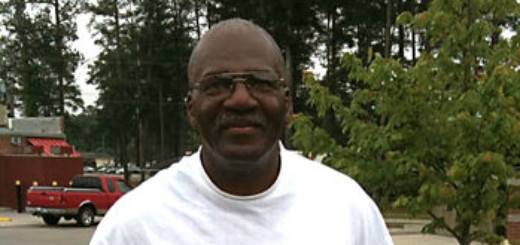If you don’t want an answer…
Journalism is at its roots a practice in asking questions. The more questions you ask, the more answers you stand to get, the more you can do your job of informing the public. Sometimes-and frankly, more often than seems reasonable–TV journos are forgetting that job. They’d rather be commentators, speculators, advocates, or stars.
In the old days, we’d make fun of the competition when they would throw up a graphic with a question mark on the end. Lake contamination? Scandal? Could it happen here? The act of putting a question mark out there automatically implies you don’t know the answer, and if you don’t know the answer, you are going to be hard pressed inform the public.
Every newsroom has been guilty of it at one time or another. The worst offender right now is CNN.com. Five minutes ago, the homepage had all of theses questions displayed as headlines at the same time. One web page…five question headlines.
Ready to car shop again? No.
Is ‘sexting’ child pornography? No.
‘American Idol’ blog: Who were your favorites? Who?
Auto industry in the toilet? Yes.
Is Shaq seeking trade to Dallas? I don’t know. Is he?
For the most part, it’s simply lazy headline writing. On a larger scale, though, I think there is probably some malevolent consultant at work. “Have a conversation with your viewers,” the consultant is saying. “Make your viewers believe their opinions count.” Nothing wrong with that, for sure. In the wrong hands, though, it’s just bad journalism. There is a learning curve in dealing with social media. I know from recent experience that some very good journalists are still learning to understand how Twitter even works.
You’d think I could just give up on news. Sometimes I like to read the creed I’ve posted below. Even though I don’t live the life anymore, I still believe what Walter Williams wrote so many years ago.
I believe in the profession of journalism.
I believe that the public journal is a public trust; that all connected with it are, to the full measure of their responsibility, trustees for the public; that acceptance of a lesser service than the public service is betrayal of this trust.
I believe that clear thinking and clear statement, accuracy and fairness are fundamental to good journalism.
I believe that a journalist should write only what he holds in his heart to be true.
I believe that suppression of the news, for any consideration other than the welfare of society, is indefensible.
I believe that no one should write as a journalist what he would not say as a gentleman; that bribery by one’s own pocketbook is as much to be avoided as bribery by the pocketbook of another; that individual responsibility may not be escaped by pleading another’s instructions or another’s dividends.
I believe that advertising, news and editorial columns should alike serve the best interests of readers; that a single standard of helpful truth and cleanness should prevail for all; that the supreme test of good journalism is the measure of its public service.
I believe that the journalism which succeeds best — and best deserves success — fears God and honors Man; is stoutly independent, unmoved by pride of opinion or greed of power, constructive, tolerant but never careless, self-controlled, patient, always respectful of its readers but always unafraid, is quickly indignant at injustice; is unswayed by the appeal of privilege or the clamor of the mob; seeks to give every man a chance and, as far as law and honest wage and recognition of human brotherhood can make it so, an equal chance; is profoundly patriotic while sincerely promoting international good will and cementing world-comradeship; is a journalism of humanity, of and for today’s world.


Those titles are lazy, yet SEO-friendly. We all can’t be as clever and snarky as the Brits.
“I believe that a journalist should write only what he holds in his heart to be true.”
OK, it is a quibble but whatever…
I’ll trust minds more than hearts. Hearts seem to keep getting us into bigger messes. And heart strings are what cheap journalist and politicians pluck.
As the corporations that run the media get larger and larger, how much of this tendency to make headlines questions is driven by the fear of litigation? After all, if you don’t come out and make a statement you aren’t being libelous. Journalism isn’t dead, but there are an awful lot of people trying to make it that way.
One of my many pet peeves is what the media calls “newsworthy”.
Here is a classic example:
A few weeks ago there was killing spree in an old folks home. 7 dead.
The media reported it…THAT’S NEWS
They gave us the death toll, type of weapon…THAT’S NEWS.
They interviewed “eye witnesses” and administrative folks. THATS NEWS
Then they interview relatives of the victims and that IS NOT NEWS.
Who give a shit what the relatives think? Apparently most Americans
do or they wouldn’t continually do it.
Don’t misunderstand me. I’m sorry that these folks lost their loved ones and wish them well….. BUT… I do not need or want to see them on the news broadcast. It’s NOT news.
I’m tired of news as entertainment. Whatever happened to the facts? Just the facts? And don’t even get me started on that “follow us on Twitter/Facebook/the blog”. Stick to televised or printed news, folks. And get it right. Spell correctly. Use good grammar and punctuation. Make us all proud of you.